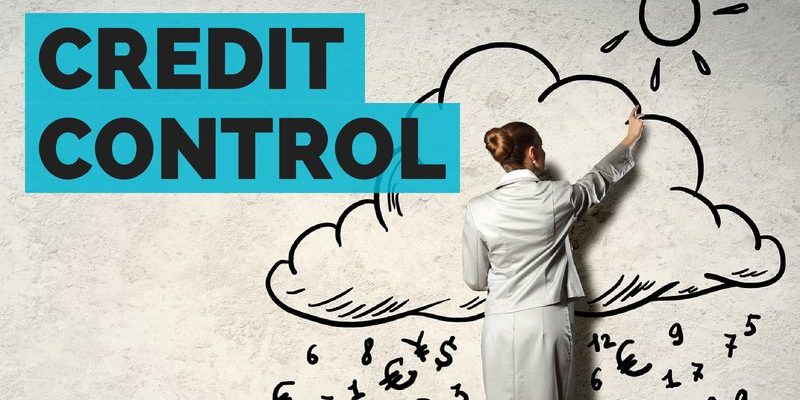Need for Credit Control: Skyrocket Your Success with These 10 Proven Advantages

In today’s dynamic economic landscape, businesses and individuals alike face numerous financial challenges. One of the most crucial aspects of financial management is credit control. Often overlooked or underestimated, effective credit control can be the cornerstone of success, offering numerous benefits that can significantly impact long-term stability and growth. In this article, we’ll explore the essential need for credit control and delve into ten proven advantages that can help you skyrocket your success in both personal and business finances.
The Essential Need for Credit Control: Enhanced Cash Flow Management
Proper credit control enables businesses to manage their cash flow more efficiently by ensuring timely payments from customers and clients. By implementing effective credit control measures, organisations can minimise late payments and maintain a steady stream of revenue, thereby improving liquidity and financial stability.
Minimising Risk: The Importance of Need for Credit Control in Reducing Bad Debt
One of the primary objectives of credit control is to minimise the risk of bad debts. Through thorough credit assessment processes and monitoring of customer payment behaviour, businesses can identify potential credit risks early on and take appropriate measures to mitigate them. This proactive approach helps minimise losses associated with non-payment or default by customers.
Building Trust: Need for Credit Control and Enhanced Customer Relationships
Contrary to popular belief, implementing credit control measures doesn’t have to strain customer relationships. In fact, it can strengthen them. By setting clear credit terms and policies, communicating effectively with customers regarding payment expectations, and offering flexible payment options, businesses can foster transparency and trust, thereby enhancing customer relationships.
Informed Decisions: Leveraging the Need for Credit Control for Better Decision-Making
Effective credit control provides businesses with valuable insights into their customers’ financial health and payment behaviour. By analysing data related to credit performance, payment trends, and customer behaviour, businesses can make informed decisions regarding credit extensions, risk management strategies, and overall financial planning.
Preserving Reputation: The Need for Credit Control in Business Reputation Management
Timely payments and responsible credit management reflect positively on a business’s reputation. By demonstrating reliability and professionalism in financial transactions, businesses can enhance their reputation within the industry and among customers, suppliers, and stakeholders. A strong reputation for financial integrity can open doors to new opportunities and partnerships.
Navigating Compliance: Ensuring Regulatory Adherence with Need for Credit Control
In today’s regulatory environment, compliance with financial regulations is paramount for businesses of all sizes. Effective credit control ensures compliance with relevant laws and regulations governing credit management, thereby minimising the risk of legal penalties, fines, or reputational damage associated with non-compliance.
Securing Funding: Expanding Access through the Need for Credit Control
Sound credit control practices can improve a business’s creditworthiness and increase its access to financing options such as loans, lines of credit, or trade credit facilities. Lenders and financial institutions are more likely to extend credit to businesses with a track record of responsible credit management and a low risk of default.
Fueling Growth: Need for Credit Control and Strategic Expansion Opportunities
By optimising credit control processes, businesses can free up resources and capital that can be reinvested in growth initiatives. Whether it’s expanding operations, launching new products or services, or entering new markets, effective credit control provides the financial flexibility needed to pursue strategic growth opportunities with confidence.
Shielding Against Uncertainty: The Role of Need for Credit Control in Economic Downturns
During economic downturns or periods of financial instability, businesses with robust credit control systems are better positioned to weather the storm. By minimising credit risks, reducing bad debt exposure, and maintaining strong cash flow, businesses can withstand economic challenges and emerge stronger on the other side.
Sustaining Success: Achieving Long-Term Stability with Need for Credit Control
Ultimately, the overarching goal of credit control is to ensure the long-term financial sustainability and success of a business. By proactively managing credit risks, optimising cash flow, and fostering a culture of financial responsibility, businesses can lay the foundation for enduring success and resilience in an ever-changing marketplace.
Conclusion
In conclusion, the need for credit control cannot be overstated in today’s competitive business environment. By implementing effective credit control measures, businesses can unlock a myriad of advantages that can propel them towards greater success and sustainability. From enhanced cash flow management to improved customer relationships and strategic growth opportunities, the benefits of credit control extend far beyond simple financial management. Embracing a proactive approach to credit control can make all the difference in achieving long-term prosperity and realising your business goals.
FAQs
Q1. What is credit control, and why is it important?
Credit control refers to the process of managing and monitoring the credit extended to customers or clients to ensure timely payment and minimise the risk of bad debts. It is important because it helps businesses maintain financial stability, manage cash flow effectively, and mitigate credit risks.
Q2. How can businesses implement effective credit control measures?
Businesses can implement effective credit control measures by establishing clear credit policies and procedures, conducting thorough credit assessments of customers, monitoring payment behaviour, communicating payment terms effectively, and leveraging technology for automation and efficiency.
Q3. What are the common challenges associated with credit control?
Common challenges associated with credit control include late payments, bad debts, customer disputes, cash flow fluctuations, regulatory compliance issues, and resource constraints. However, these challenges can be addressed through proactive credit management strategies and effective risk mitigation techniques.
Q4. How does credit control impact customer relationships?
While some businesses may fear that implementing credit control measures could strain customer relationships, it can actually enhance them. By setting clear expectations, communicating openly, and offering flexible payment options, businesses can build trust and transparency with their customers, leading to stronger relationships.
Q5. What role does technology play in credit control?
Technology plays a crucial role in credit control by automating routine tasks, streamlining processes, and providing valuable insights through data analytics. From credit scoring algorithms to invoicing software and payment processing platforms, technology enables businesses to manage credit more efficiently and effectively.
Also read: PVC VS WPC: DECODING THE DECKING CONUNDRUM WITH 10 INSIDER TIPS











